Introduction: What’s Really in Your Tap Water?
We use water every single day—for showering, cooking, and cleaning. But have you ever wondered whether the water flowing out of your faucet is truly “clean”? While municipal treatment plants remove most harmful substances, tap water can still contain chlorine as well as minerals like calcium and magnesium. These invisible elements determine whether your household water is classified as “hard” or “soft.” And that difference doesn’t just affect your appliances—it also impacts your skin, hair, and even how well your cleaning products work. Curious about the real differences between hard water and soft water, and which one is better for you and your family? Keep reading to find out.
What Is Hard Water? What Is Soft Water?
Water hardness depends primarily on its calcium and magnesium content. High levels of these and other minerals make water “hard.” In contrast, soft water typically has a higher concentration of sodium or salts rather than calcium and magnesium.
Hardness is measured both by the water’s ability to form scale and by how easily it lathers with soap. If you notice residue in sinks or bathtubs, the water is likely moderately hard to hard. If soap produces a rich lather, the water is soft. Local geology determines the hardness of your water, which is why hardness levels vary widely across regions and countries.
Water hardness is expressed in mg/L of calcium carbonate (CaCO₃):
| Water Hardness(mg/l CaCO3) | |
| Soft | Up to 100 |
| Slightly hard | 100-150 |
| Moderately hard | 150-200 |
| Hard | 200-300 |
| Very hard | More than 300 |

Sources of Soft Water
Soft water typically comes from surface sources such as rain, snow, lakes, and rivers. Because it spends little time in contact with underground rock, it doesn’t have the chance to absorb large amounts of calcium and magnesium. For example, mountain snowmelt or lake-fed water supplies are often naturally “soft.”
In some regions, the rock itself contains little calcium or magnesium, so the water remains naturally soft. We can call this naturally formed soft water.
There are also artificially softened waters, created using methods such as:
- Ion exchange softeners: Replace calcium and magnesium ions with sodium or potassium ions, lowering hardness.
- Reverse osmosis (RO) filtration: Uses high-pressure membranes to filter out most dissolved solids, including calcium and magnesium. This method, often used in kitchen filtration systems, produces nearly “pure” water, which is naturally very soft.
Sources of Hard Water
Hard water is part of the natural water cycle. Rainwater begins almost mineral-free and very “soft.” But as it seeps into soil and rock layers, it acts like a sponge, absorbing calcium, magnesium, and other minerals along the way.
If your supply comes from groundwater or wells, which spend more time in contact with rock, the mineral content is naturally higher, making the water harder. By contrast, surface waters such as lakes and reservoirs have less exposure to rock and therefore tend to remain softer.
In many regions of the U.S., particularly the Midwest and Southwest, underground layers are rich in limestone (calcium carbonate) and dolomite (magnesium carbonate). As water flows through these rocks, it dissolves calcium and magnesium ions, increasing hardness. This is why hard water is especially common in these areas.
Soft water is the opposite: it contains very few calcium and magnesium ions, which makes it easier to lather with soap and less likely to leave stubborn scale behind.
Advantages of Soft Water
Less cleaning product needed
Soft water lathers easily with soap and detergents, so you need less shampoo, laundry detergent, or dish soap for the same cleaning power.
Gentler on skin and hair
With fewer mineral residues, soft water leaves skin more hydrated and hair smoother and tangle-free. People with sensitive skin or conditions like eczema often find soft water more comfortable.
Protects appliances and plumbing
Because soft water doesn’t create scale, it reduces buildup in water heaters, washing machines, coffee makers, and pipes, extending their lifespan and lowering maintenance costs.
Cleaner household surfaces
Dishes and glassware dry without spots, and bathroom surfaces stay shinier with less scrubbing.
Disadvantages of Soft Water
Lower mineral content
Softened water lacks calcium and magnesium, which some studies suggest may reduce its nutritional value.
Higher sodium levels
Ion-exchange systems often use sodium to replace calcium and magnesium, raising sodium levels in softened water. For people on low-sodium diets (e.g., those with hypertension or heart disease), this may not be ideal for long-term drinking.
Taste differences
Many people find soft water tastes flat or slightly salty compared to the “crisp” flavor of hard water.
Maintenance costs
Whole-house softening systems require salt refills and filter changes, representing ongoing expenses.
In summary, soft water offers clear advantages for cleaning and personal care, making it ideal for bathing, laundry, and household chores. However, if consumed in excess, especially when overly softened, it may not be the healthiest choice.
Advantages of Hard Water
Nutritional value
Rich in calcium and magnesium, hard water can supplement dietary intake of these essential minerals. Some studies even link hard water to potential benefits for bone and cardiovascular health.
Taste
Many people prefer the fuller, more “robust” taste of hard water compared to the flatness of soft water.
Disadvantages of Hard Water
Scaling problems
Heated hard water forms deposits in kettles, coffee makers, and water heaters. Over time, these deposits reduce efficiency and shorten appliance life.
Cleaning difficulties
Hard water doesn’t lather easily with soap, requiring more detergent for laundry, dishes, and showers. It also reacts with soap to form stubborn scum on bathroom surfaces.
Skin and hair irritation: Hard water often leaves skin feeling dry and tight, while hair may become dull, frizzy, and difficult to manage. For sensitive skin or eczema sufferers, hard water can worsen irritation.
Reduced water flow
Scale buildup can clog faucets and showerheads, lowering water pressure and reducing overall water quality.
In short, hard water is a double-edged sword: beneficial for mineral intake, but problematic for household maintenance and personal comfort.
What's the Difference Between Hard and Soft Water
You can’t always see the difference directly, but your daily experience may reveal clues.
Signs of Hard Water
- Slippery film after washing hands: Soap reacts with calcium and magnesium to form residue, making rinsing feel incomplete.
- Spots on dishes and glassware: White streaks or cloudy deposits—usually calcium carbonate—remain after washing. Bathroom surfaces also show scale buildup.
- Laundry stains and appliance damage: Clothes appear gray or stiff, and appliances like washing machines, dishwashers, and coffee makers wear out faster due to mineral deposits.
- Skin and hair issues: Skin feels tight and dry after bathing, while hair is more brittle, frizzy, or tangled.
Signs of Soft Water
- Soaps and shampoos lather easily.
- Skin feels smooth and hydrated, and hair is shinier and easier to manage.
- Dishes and bathrooms stay spotless and free of scale.
More accurate testing options
- Home test strips for quick hardness readings.
- Electronic water quality testers (TDS meters).
- Requesting an official water quality report from your utility company.
Solutions for Hard Water
Whole-house water softeners
Ideal for very high hardness areas. These systems use ion exchange to remove calcium and magnesium, softening all household water at the source. However, they require significant upfront investment, regular maintenance, and cannot remove chlorine.
Filtered shower heads
A cost-effective alternative to whole-house systems. Shower filters often contain media such as KDF-55, calcium sulfite, activated carbon, and vitamin C. These filter chlorine, heavy metals, and impurities directly from the water you bathe in, reducing scale buildup and protecting skin and hair.
Hard water cleaning products
For visible stains and scale on surfaces, specialized detergents or simple solutions like diluted vinegar can help remove buildup in bathrooms and appliances.
Why Choose a Filtered Shower Head?
Once you understand the downsides of hard water, it’s clear that the problems often show up where you feel them most: dry skin, brittle hair, and stubborn bathroom scale. While whole-house softeners are expensive and softened drinking water may have downsides, a filtered shower head offers a practical balance.
For example, the AquaNurture Filtered Shower Head uses dual filtration (e.g., KDF-55 and calcium sulfite) to effectively reduce chlorine, heavy metals, and other impurities. This helps minimize dryness, frizz, and irritation caused by hard water. In essence, it acts as a final barrier—purifying the water right before it touches your skin and hair, for a healthier, more refreshing shower experience.
Key benefits
- Affordable and easy to install: No need to overhaul plumbing.
- Improved shower comfort: Softer water, better lather, smoother skin and hair.
- Appliance and fixture protection: Less scale buildup means longer-lasting showerheads and faucets.
Choosing a filtered shower head is an easy, budget-friendly way to protect your family’s health and enhance daily comfort.
Conclusion
Water quality may seem like a small detail, but it shapes our daily lives in big ways. Hard water, the most natural form, delivers minerals but also brings cleaning challenges, appliance wear, and skin discomfort. Soft water offers a gentler, more comfortable experience, protecting both your body and your home—but it isn’t without drawbacks, especially when overly softened.
The key is finding balance. For most households, a high-quality filtered shower head provides the best solution. It removes chlorine and impurities, reduces scale, and delivers a shower experience closer to soft water—gentle, refreshing, and healthy.
Every shower is more than just cleaning—it’s a moment of care and relaxation. By making the right water choices today, you can protect your skin, hair, appliances, and overall well-being for years to come.
Frequent Asked Question About The Difference Between Hard Water and Soft Water
Q1: What is the main difference between hard water and soft water?
Hard water contains high levels of calcium and magnesium, which cause scaling and make it harder to lather soap. Soft water, on the other hand, has very low levels of these minerals and is usually higher in sodium or treated to remove hardness.
Q2: Is hard water safe to drink?
Yes. Hard water is safe to drink and even provides essential minerals like calcium and magnesium. However, it can cause problems for skin, hair, appliances, and cleaning tasks.
Q3: Does soft water have health benefits?
Soft water is gentler on skin and hair, prevents scale buildup, and reduces detergent use. However, it may contain higher sodium levels (from ion-exchange systems) and lacks calcium and magnesium, which some consider essential nutrients.
Q4: Which areas have the hardest water?
Hard water is especially common in regions with limestone or dolomite bedrock, such as the Midwest and Southwest of the United States. Surface water sources (like lakes and rivers) are usually softer.
Q5: Why is a filtered shower head a good solution for hard water?
Filtered shower heads are affordable, easy to install, and directly target chlorine, heavy metals, and other impurities in your shower water. They protect skin and hair from dryness and irritation, reduce scale buildup in the bathroom, and provide a softer water experience without the cost of a whole-house system.

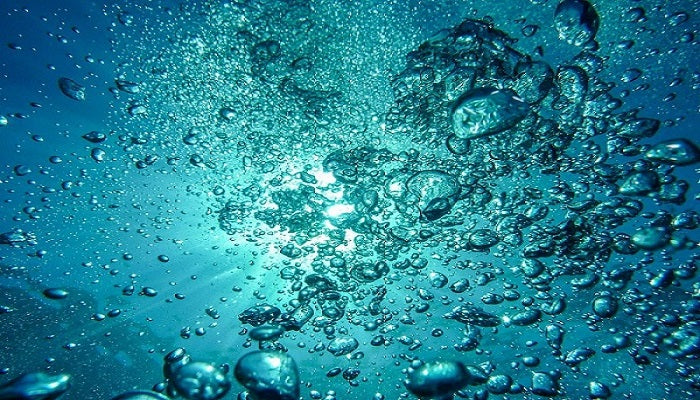
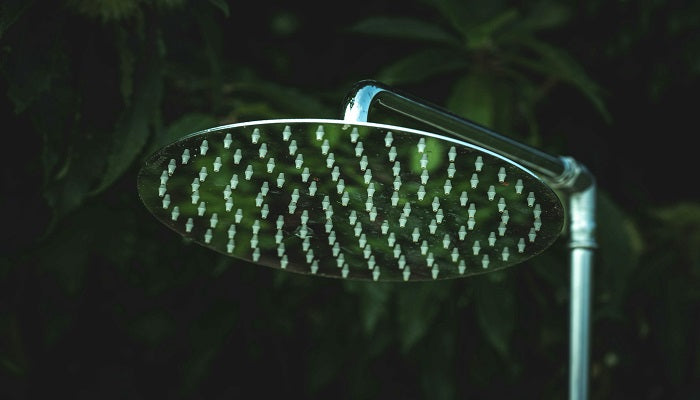
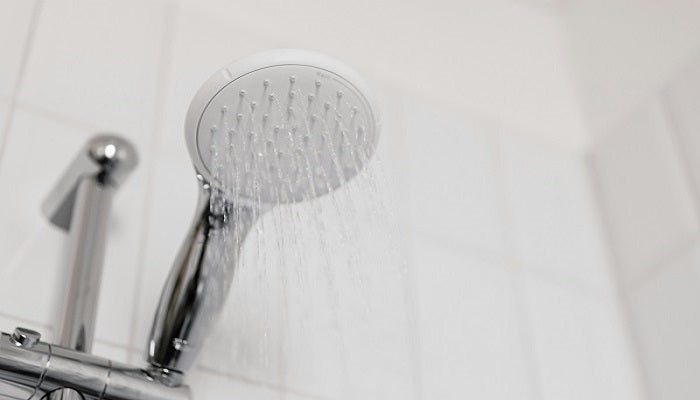
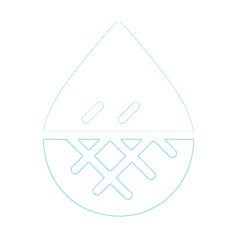


Leave a comment
This site is protected by hCaptcha and the hCaptcha Privacy Policy and Terms of Service apply.